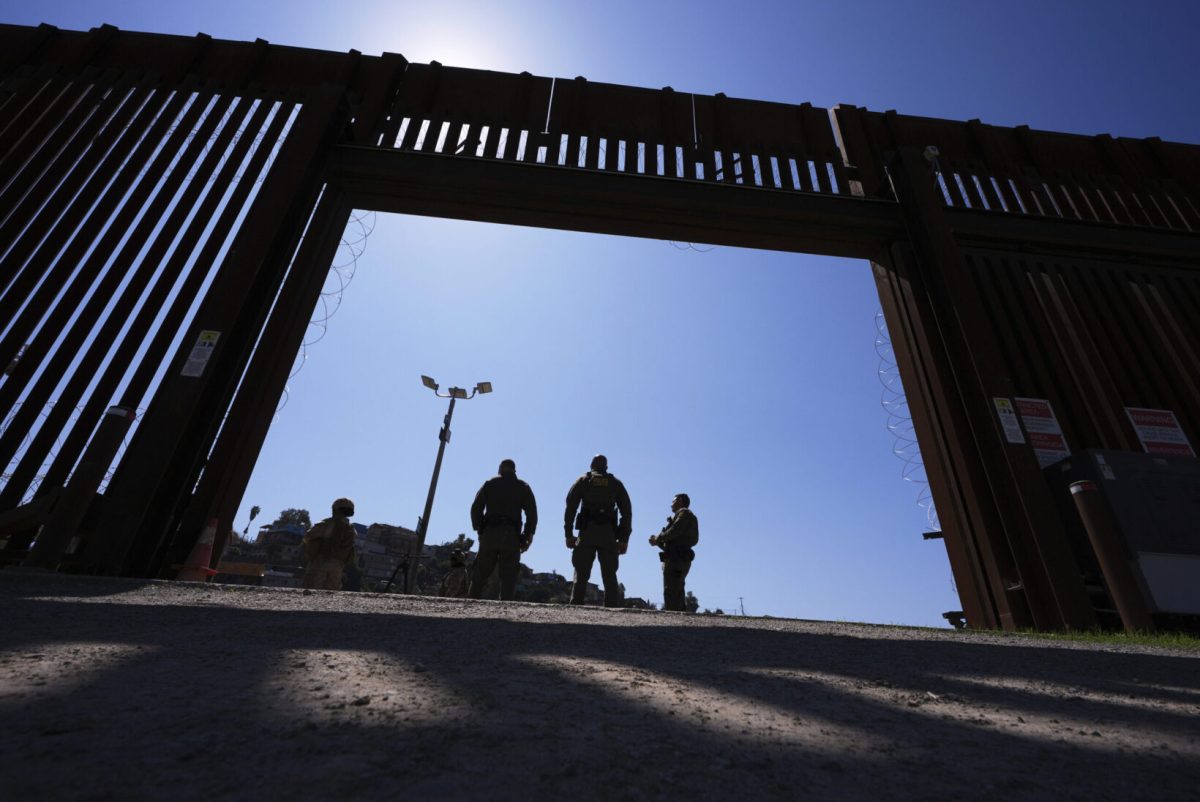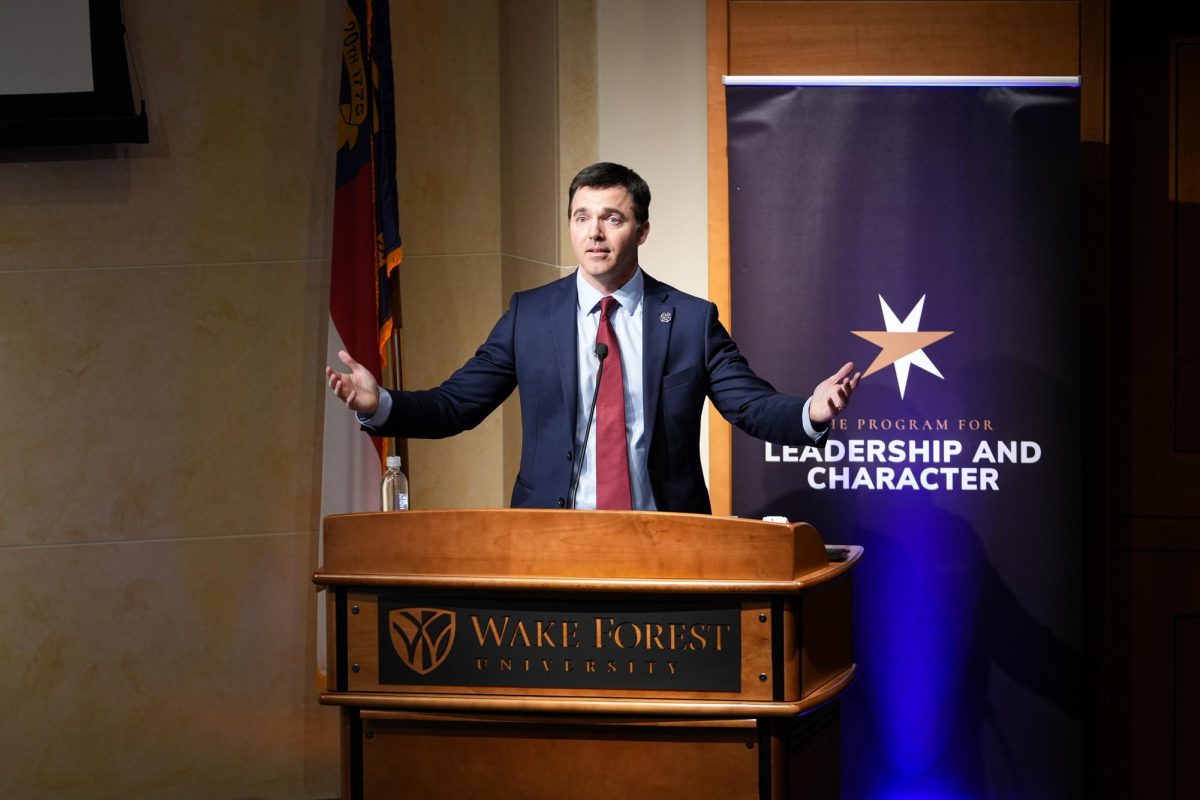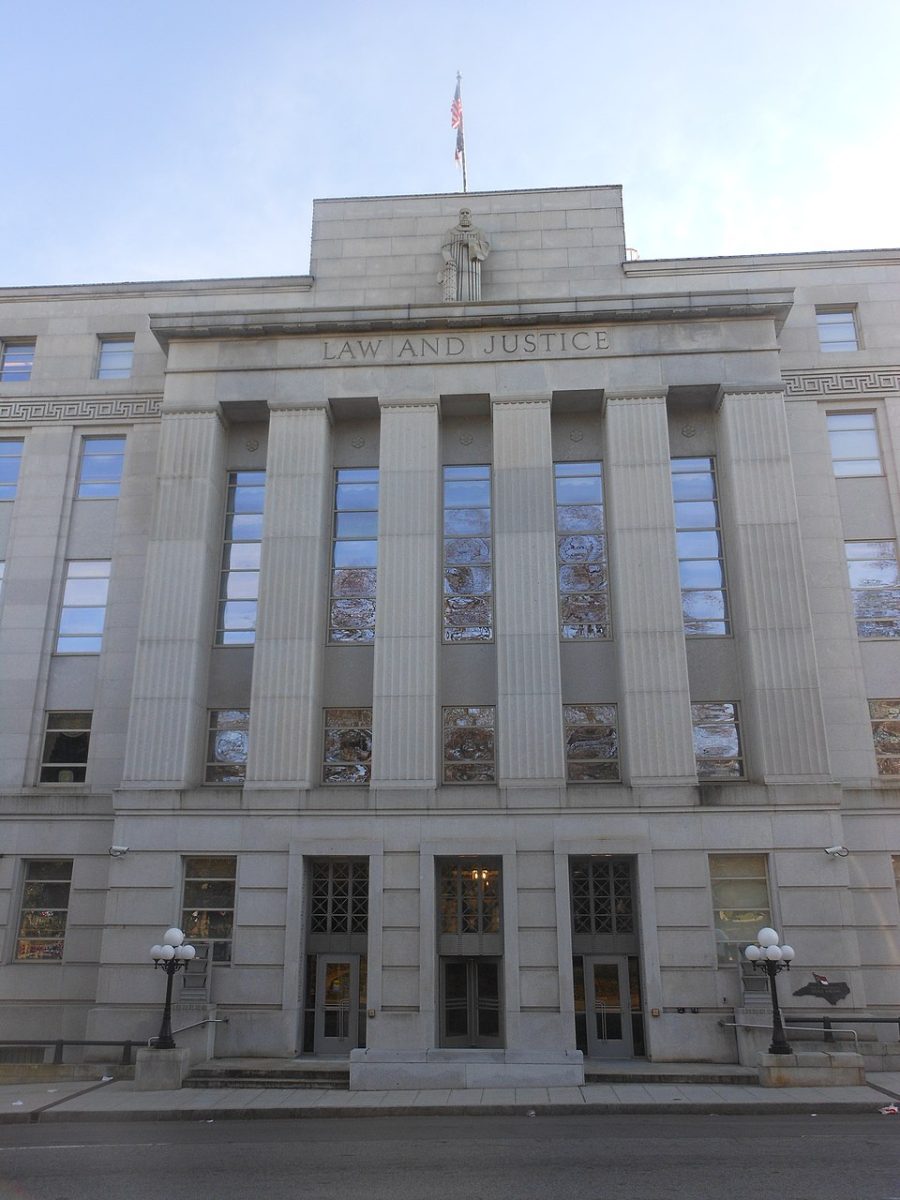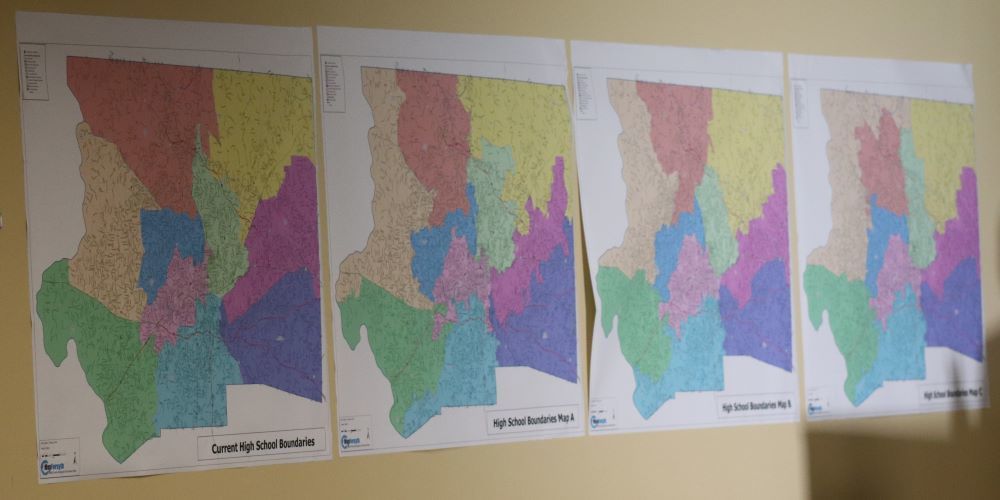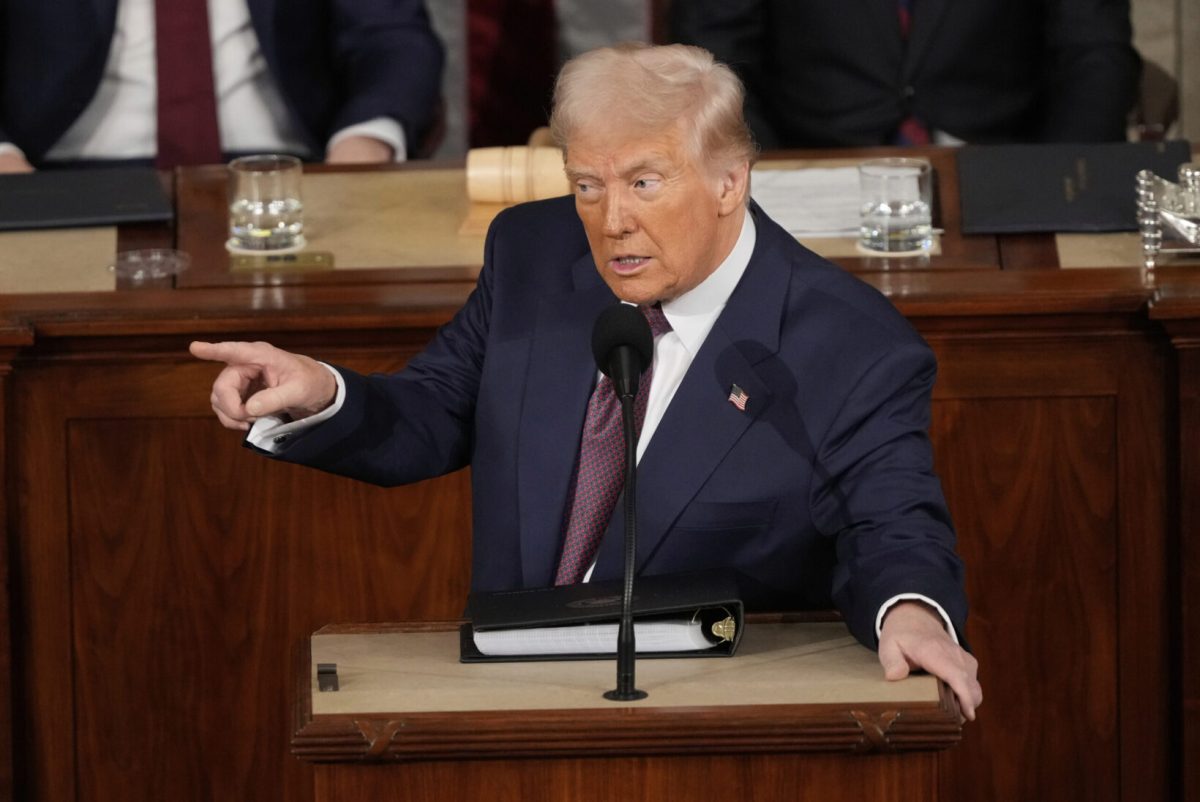In just 52 days since taking office, President Donald Trump has already made significant changes to the federal government. From implementing his tariff policy to Elon Musk’s role in downsizing the size of the federal government through the Department of Government Efficiency (DOGE), a lot has changed with this administration.
His 52nd day was also Thursday, March 13—the day when Rep. Chuck Edwards R-N.C. hosted a public town hall with voters in Asheville, N.C. The discussion centered around the Trump administration’s actions in the Tarheel State. Voters had much to share on the subject.
Edwards’s district represents Asheville, which was hit by Hurricane Helene in late September. Many buildings and facilities in the city are still in need of repair. The North Carolina Office of State Budget and Management (NCOSBM) reported an estimated $59.6 billion in damages at the end of 2024, along with additional needs.
Edwards began the town hall by discussing western North Carolina’s recovery from Hurricane Helene, specifically by highlighting the work he said the Trump administration has been doing for the region’s recovery.
In an attempt to reassure voters of the work being done to rebuild the western part of the Tarheel State, Edwards spoke on the president’s proposal to dissolve the Federal Emergency Management Agency (FEMA). Created in 1979, FEMA’s role is to fund recovery efforts at the state and local level and support survivors after natural disasters.
Edwards unintentionally stirred the crowd with this statement. Many voters shouted at him and demanded that he take their questions immediately. One voter even had to be escorted out of the hall after shouting expletives at the congressman.
FEMA was not the only contentious issue discussed at Edwards’s town hall. When Edwards permitted the audience to ask questions, many asked about Elon Musk’s role in the future of health care programs such as Medicare and Medicaid.
There were also concerns about layoffs at the Department of Veterans Affairs. One constituent asked, “How do you justify cuts to staff of the VA helping veterans, especially those with long-term care needs?”
This question received a standing ovation from the audience.
“We need to protest,” said Barbara St. Hilaire, a 63-year-old Asheville resident who attended the town hall. “We need to stand up for what we believe in, and what we believe in are the government agencies that support the middle class and the lower class.”
However, Edwards remained steadfast in his support of the Trump administration’s policies. He emphasized that an essential part of his role was to identify the decisions his constituents disagreed with, allowing the federal government to “go back and look” at what improvements could be made.
This approach contrasts sharply with the strategy of some within the GOP, such as Mike Johnson, who told party representatives to skip out on town halls, arguing that protesters were professionals paid to be there. However, Edwards refused Johnson’s request, arguing that he didn’t want to “shy away” from the concerns of the people of western North Carolina—even if they disagreed with him.
Concerns voiced by constituents are not unique to North Carolina. In Wyoming, Rep. Harriet Hageman R-W.Y., who succeeded Liz Cheney, faced slightly less outrage from her constituents. This discontent was particularly related to Elon Musk and his role in DOGE, showcasing these ideas are held beyond state lines.
For communities like Wake Forest, understanding these town halls illustrates how national policies are impacting the local level, providing a clearer perspective of the environment that students and future voters are entering.
These political sentiments expressed in recent town halls are evident in recent electoral outcomes across various states. In a Pennsylvania special election last Tuesday, March 25, Democrat James Malone won the seat for Pennsylvania’s 36th Senate District, which had been held by Republicans since 1879. This district had previously gone to Trump by a margin of 15 points in 2024 and has a 23-point Republican voter registration advantage. Many Democrats interpreted this win as a rebuke of Trump Administration policies, though it is important to note that decreased turnout may have favored the Democratic candidate.
During a press conference following his town hall, Edwards stated, “We’re doing exactly what the American people sent us to Washington, D.C. to do.” Only time will reveal whether voters share that sentiment. The upcoming special election in Pennsylvania may provide important insights into what the future holds, especially if voters do not agree.





